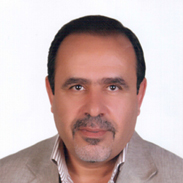Articles > > Elections for Palestinian National Council: One Step Back, Two Steps Back.
Articles - Others - Date: 2025-07-29
The announcement of general elections to reconstitute the Palestine National Council could have been a welcome relief for those Palestinians longing to revitalise the Palestine Liberation Organisation (PLO). Greater democratic input in representative institutions has long been demanded by such Palestinians, seeking to end the system of appointments, clientelism, and factional quotas designed to serve ulterior agendas.
Despite the enduring popularity of such demands, the presidential decree mandating elections before the end of the year came as a shock to many Palestinians. Rather than providing comfort and optimism, the announcement has instead raised questions. All the major Palestinian factions within and outside the PLO have rejected any such election. The only ones applauding the decision were the “decimal point factions” — groups so marginal that they only exist to applaud whatever decree is created by the leadership of the Palestine Authority and PLO.
Alongside the major Palestinian political parties, the decree has been rejected by respected national figures, institutions, and bodies. It appears to be an impromptu leap into the unknown, whose arbitrariness cloaks ulterior motives that have the potential to bring about disastrous consequences. The announcement has come at a high point in the genocide and ethnic cleansing being carried out against Palestinians in Gaza, and to a lesser extent in the West Bank. Yet its issuer has failed to answer the basic question: How can elections be held in decimated Gaza? How can anyone with a conscience ask those “tortured, starved, and terrorized in their Homeland” to emerge from their displacement and head to a polling station to cast a vote? Are there even any viable locations left in Gaza to establish such stations? The decree reflects a fundamental distortion in the priorities of its issuer. How can there be a Palestinian political policy more urgent than the halting of massacres in Gaza and providing food to the two million Palestinians starving therein?
The decree does not provide any details regarding how or where these elections are supposed to be held. Have relevant authorities taken the steps necessary to coordinate with the foreign countries that host seven million Palestinian refugees? Has there at least been some preparation of voter rolls to determine who qualifies as a Palestinian with the right to vote? Only with such preparation could one begin to formulate metrics regarding voter turnout in a process unprecedented since the establishment of the PLO more than sixty years ago.
Other gaps in the decree include its solution to Israel’s inevitable refusal to allow elections in East Jerusalem, a challenge that was previously cited as a pretext to cancel general legislative and presidential elections. This is such that, despite preparations being well underway, with electoral lists and political alliances formed, past electoral proceedings were suspended by presidential decree. The reason cited was a refusal by the Palestinian Authority to abandon Jerusalem from electoral decisions. What has changed today, or rather, what would have changed by tomorrow, when Tel Aviv once again refuses to allow an election in its so-called “eternal unified capital”?
The bombshell decree also raises the question: Why start democratization with elections for the Palestinian National Council? Surely it would be more appropriate to first renew the institutions of the Palestinian Authority, starting with its president, whose term expired sixteen years ago, or the “betrayed” Legislative Council, which was supposed to be re-elected fifteen years ago. Not to mention the need to revitalise the dozen popular organisations that now play virtually no role in Palestinian political life, having been hijacked, bulldozed and hollowed out, despite at one time having dominated the airwaves and political organisation.
Issuers of the decree know, as do we and every Palestinian, that the “election” of the Palestinian National Council will inevitably devolve into selective appointments based on candidates’ personal and factional loyalties. The end result is a restructuring of the organization in line with the standards of Oslo and post-Oslo agreements. This would strip the organization of its representational character that acts as a unifying framework, facilitating Palestinian intellectual, political, and social pluralism. Instead, it would be reduced to a “legitimate” extension of the dominant faction of the PA, which has positioned itself as an entity that does little but adapt to the Israeli solution to the Palestinian cause.
The decree is thus a knife aimed at the back of the “sole legitimate representative” of Palestinian popular discourse, intended to expel those who oppose Oslo in its most flimsy and vulgar form. The conception of Oslo that awaits the Palestinians is already being partially revealed in the schemes of their enemies. It is one where there is no room for freedom or independence. No “place under the sun” for a Palestinian state on its national soil, let alone any discussion of a capital in Jerusalem, right of return, sovereignty, or even the illusion of prosperity.
The issuers of the decree are fully aware of the challenges that lie ahead and are already adapting to facilitate them. Their vocabulary does not include words like steadfastness, resilience, or resistance. They know that anyone who holds even the most basic values upon which the Palestinian national movement was founded will not accept that the stamp of the PLO legitimizes the settlements that await them. That is why the PA rushes to restructure the organization. To remove anyone who has broken away from the Oslo framework, or has learned the lessons of its repeated failures, and decided to return to the fundamentals of national liberation. They want the PLO tailored to the specifications of Trump and Witkoff, though primarily, to the most abhorrent Israeli standards.
Elections are, by their nature, meant to reinvigorate institutions of governance and authority, such as the PLO. Their purpose, in this case, is to generate Palestinian legitimacy. This may only occur if such elections are conducted through consensus and meaningful national dialogue, not of the performative variety which has become too familiar in the Palestinian context. Given the absence of both these conditions, many, including ourselves, believe that if this act moves forward, whether through actual elections or direct appointments, it will serve to shatter what remains of Palestinian national unity. It will drive the wedge of Palestinian division deeper, rather than healing it.
We are unsure whether the decree will achieve its intended goal. It was issued in the dead of night, without consultation, even within the leadership of Fatah and the Palestinian Authority. It was a unilateral decision carried out by a small “troika” or “quartet” of decision-makers, reminiscent of another decree issued in the same manner that did nothing but fuel political fragmentation. I am referring to the disarmament of the refugee camps in Lebanon. President Mahmoud Abbas travelled to Beirut to aid the task of disarmament undertaken by the Lebanese state and army. However, before making the announcement, he did not consult any of the relevant parties, including those on the ground who held actual power. He did not even inform the leaders of Fatah, its generals, or its ambassadors in Beirut. Abbas returned from what was termed a “historic” visit, but the weapons remained where they were, with the only outcomes being the widening of rifts between Fatah and Hamas, as well as within Fatah itself. What has followed is a familiar pattern, still playing out in successive episodes of reassignments, disciplinary action, and forced retirements, all orchestrated to force through a unilateral decision clouded by ill judgment.
Some of those interpreting the two decrees instituted by the PA have concluded that they demonstrate the detachment of the decision-making elite in Ramallah from reality. It is this same elite that continues to act as though they still hold the political reins, despite being the most absent player from the Palestinian scene since at least October 7th. However, in my view, such an explanation is simplistic and fails to capture the full picture. I believe that Lebanon’s explosive policy was a calculated move, coordinated with Arab and international parties, with Israel not being far from such negotiations. The goal was to embarrass the resistance and expel them from their strongholds, as part of a broader approach to antagonize it in Gaza and fight it in the West Bank. The aim was not merely to toss the ball into the court of Hamas, Islamic Jihad, and their allies, but rather to throw a grenade and hope the shrapnel would do irreparable damage. Perhaps, we can go even further, and identify the “Refugee Camp Disarmament Decree” as the first chapter in a broader series of efforts, led by the US Special Envoy to Syria, Tom Barrack, to disarm Hezbollah and strip it of its remaining capabilities.
As for the most recent decree regarding elections, it carries with it the same underlying goal: to alienate the resistance and push it out of the Palestine Liberation Organization before it can even enter, thereby stripping it of any legitimacy. Such an approach runs counter to demands following the Al-Aqsa Flood operation, which called for the protection of the resistance by integrating it into the PLO. The result would be a government of national unity that would speak in the name of all Palestinians.
The two decrees thus fall within the broader context of a “war of encirclement” waged on multiple fronts against the Palestinian resistance forces. This conflict is most horrifically manifested in the two-year war on Gaza, the ongoing string of assassinations, demonization campaigns, and efforts to make inoperable any popular or partisan political environments that seek to support the resistance. In short, these decrees are part of an assault on the resistance. They contain no genuine desire to reorganize Palestinian politics domestically or unify its ideological movements. Their outward pretense does not conceal their true intent. No mercy may be expected from them, only endless turmoil.




